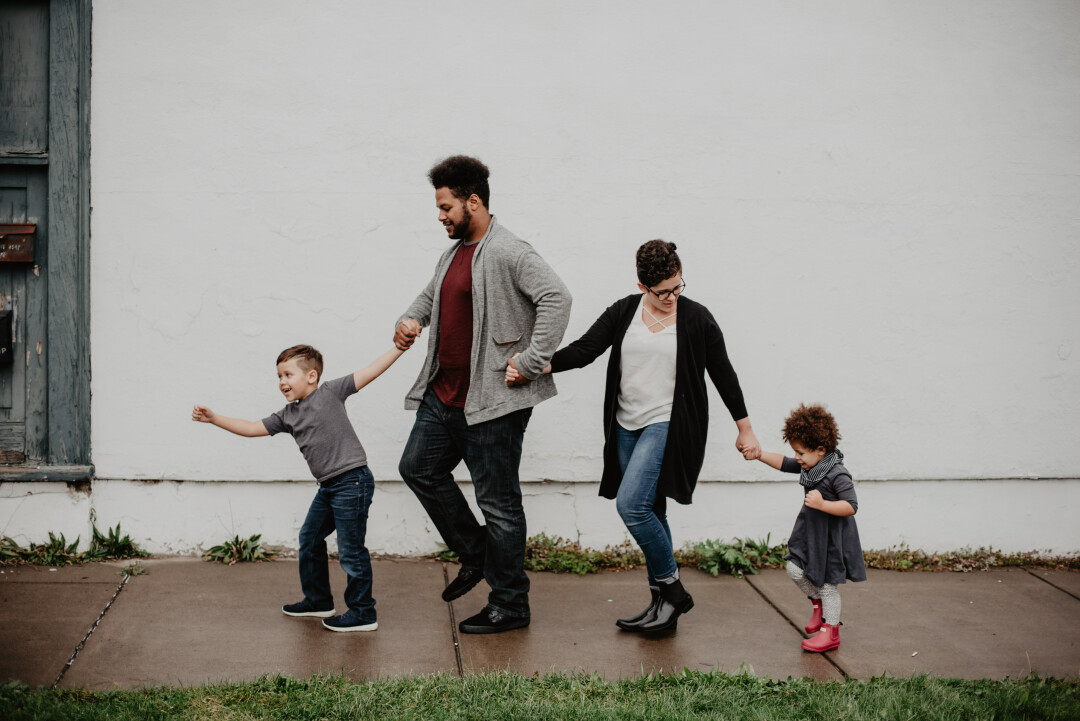
Receiving Grace from Others
Receives grace and forgiveness from other members of the family.
![]()
God is the initiator of all grace. Yet, the distribution of God’s grace does not end with His gracious gifts toward us. Having received God’s grace, we in turn share that grace with one another. As we help our children to learn how to receive God’s grace, we demonstrate this great exchange through our own gifts of grace to our children. There is something important about being able to ask for and receive forgiveness within the context of the family. Our children need to hear that they are forgiven by us and by others within the family and those connected to our family.
Paul notes in Ephesians 4:32 that we are to “Be kind to one another, tenderhearted, forgiving one another, as God in Christ forgave you.” There is a value on both sides of the equation. Forgiveness is an act of relational restoration. When God forgives us, He removes the impediment that sin places in our relationship with Him. When we receive that forgiveness, we receive once again the love that flows from that restored relationship.
Sin impacts not only our relationship with God, but with one another as well. When we receive forgiveness and grace from one another, our relationships that were damaged by sin are able to be restored. Note how Paul talks about being tenderhearted. I think that this tenderheartedness is an aspect of this exchange from both sides. It is not just that our hearts need to be open and tender toward the one who sinned against us, but we need also to be open and tenderhearted toward those who offer forgiveness to us.
There is an act of vulnerability for the person hearing that they are forgiven that we might not always consider. When I, as a parent, tell my sons that I forgive them, I am both extending grace to them, as well as acknowledging the need for there to be forgiveness. It is too easy to just say “That’s ok” when our children say that they are sorry. Whether we consider this or not, there is a way in which saying “That’s ok” avoids the difficult part of the conversation. There is a certain pain involved hearing that what was done was indeed sin and something that needs to be forgiven.
This can be made more personal when the relationship damaged by sin is between siblings. There is an increased vulnerability to having to be open to admitting your sin or having that sin acknowledged as such by your sister or brother. The combination of closeness and competition in the sibling relationship adds a dimension that makes hearing an affirmation of sin more difficult to swallow.
Yet, for all these reasons, our children need to hear from us and from one another not only that they do sin, but that they are forgiven by us as well as by Christ. When our children ready their hearts to accept their own sin, they prepare their hearts to receive forgiveness. This makes me think of the classic “Jesus Save” bumper sticker. The statement is true, but lacks context. What does Jesus save us from? In the context of our children receiving grace from others, what is this grace for?
If there is no sin, there is no need for forgiveness. If I do not acknowledge the sin of my child, responses like “That’s ok” steal full relational restoration from us both. Being tenderhearted is vulnerability. Neither myself as a parent nor my sons are able to experience the fullness of our love for one another if we are unwilling to risk the hurt associated with acknowledgment of our sin against one another.
If I break my arm and need to get the bone set properly in order to allow for proper healing, but I refuse to acknowledge the extent of the damage, I really cannot expect healing to go well. Yes, setting the bone can be just as painful as the original break. No, I really don’t want to experience that. However, setting the bone to allow healing to take place, as it should, restores the relationship between the parts of the bone that have been harmed. In order to receive this grace from one another our children need to learn through our modeling what it looks like to be tenderhearted enough to be open to receive.


